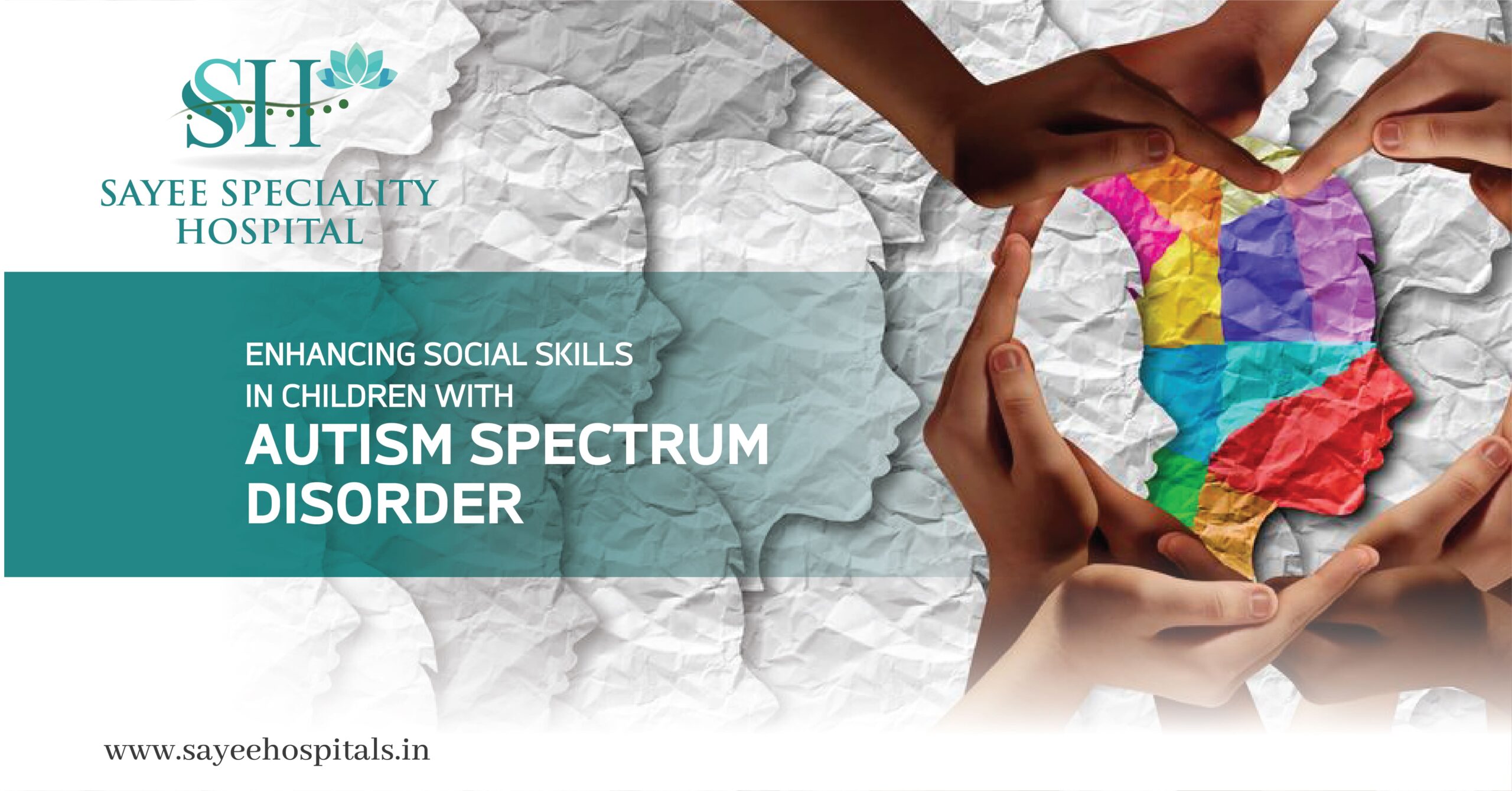Autism Spectrum Disorder (ASD) is a neuro developmental condition impacting communication, social interaction, and behavior. Children with ASD often struggle with crucial social skills such as communication, empathy, self-awareness, and self-regulation, making it challenging for them to form relationships and navigate social situations. However, there are effective strategies that parents and educators can employ to help children with ASD improve their social skills.
Scientific-Evidence based Therapies
- Behavioral and Communication Approaches:
- Applied Behavior Analysis (ABA): This widely utilized approach incorporates discreet trial training and pivotal response treatment.
- Developmental Individual Difference, Relationship-based (DIR or Floortime):
- This approach focuses on individual differences and building relationships through interactive play and communication.
- Early Start Denver Model (ESDM):
- Specifically designed for young children with autism, ESDM combines behavioral and developmental principles to enhance social and cognitive skills.
- Treatment and Education of Autistic and Related Communication-Handicapped Children (TEACCH):
- TEACCH emphasizes structured teaching methods and visual supports to promote independence and communication.
- Alternative/Augmentative Communication Strategies:
- Picture Exchange Communication System (PECS): This method utilizes visual symbols to facilitate communication for individuals with limited verbal skills.
- Sensory Integration Therapy:
- This therapy targets sensory needs by providing specific sensory experiences to enhance self-regulation and adaptive responses.
- Cognitive Behavior Therapy:
- Cognitive behavior therapy focuses on addressing cognitive distortions and modifying maladaptive behaviors through targeted interventions.
- Medications:
- Medications may be prescribed to manage associated symptoms such as inattention, hyperactivity, and self-injurious behavior.
These therapies and interventions are grounded in scientific evidence and have been utilized in various therapeutic contexts to support individuals with diverse needs.
Role-Playing:
Role-playing is a valuable technique that enables children to practice social skills, including initiating conversations, sharing, and taking turns. To ensure its effectiveness:
- Select relevant scenarios that align with the child’s life and social goals to boost engagement and motivation.
- Utilize visual aids such as pictures or written scripts to enhance understanding and reduce anxiety.
- Provide positive feedback throughout the activity to reinforce positive behaviors and foster motivation.
- Gradually increase the difficulty of scenarios to promote skill development.
- Encourage the application of learned social skills to real-life situations for increased confidence and independence.
Peer-Mediated Instruction and Intervention (PMII):
PMII involves training typically developing peers to work with children with ASD, modeling appropriate behaviors, providing feedback, and reinforcing positive social interactions. This structured approach:
- Engages children with ASD and their peers in joint social and academic activities.
- Teaches peers specific strategies for interacting with children with ASD, such as modeling, prompting, and using visual supports.
- Is led by trained professionals who guide and support both peers and children with ASD.
- Facilitates the generalization of learned skills to other settings and interactions with peers.
Visual Supports:
Visual supports, including picture schedules, social stories, visual timers, and communication aids, play a vital role in helping children with ASD understand social situations and appropriate behaviors. Key types of visual supports include:
- Picture schedules: Show the sequence of activities in routines, aiding anticipation and comprehension.
- Social stories: Short narratives explaining social situations and appropriate behaviors.
- Visual timers: Enhance time management and understanding of activity duration.
- Communication aids: Assist in expressing needs, wants, and emotions effectively.
- Behavior supports: Utilize charts or token systems to manage behavior and reinforce positive actions.
- Social skills supports: Employ visual aids, such as social stories, picture prompts, and videos, for teaching social skills.
Social Skills Groups:
Structured social skills groups led by professionals provide children with ASD opportunities to practice social skills, such as conversation initiation, sharing, and turn-taking, in a supportive environment.
Parent Training:
Parent training equips parents with strategies to support their child’s social development, including encouraging social interactions and providing positive reinforcement for appropriate behaviors.
Video Modeling:
Video modeling involves showing children with ASD video clips of appropriate social behaviors, enhancing learning in a visual and concrete manner.
Sensory Integration Therapy:
Sensory integration therapy helps children with ASD who struggle with processing sensory information, enabling them to regulate sensory input and improve social engagement.
Implementing these strategies requires individualization based on each child’s needs, strengths, and weaknesses. Meaningful and engaging implementation, tailored to the child, is crucial. Ongoing support and reinforcement, such as praise and rewards, are essential to encourage and sustain progress. For comprehensive management and support, book an appointment with Paediatric specialists at Sayee Hospitals to learn more about autism and its management.
